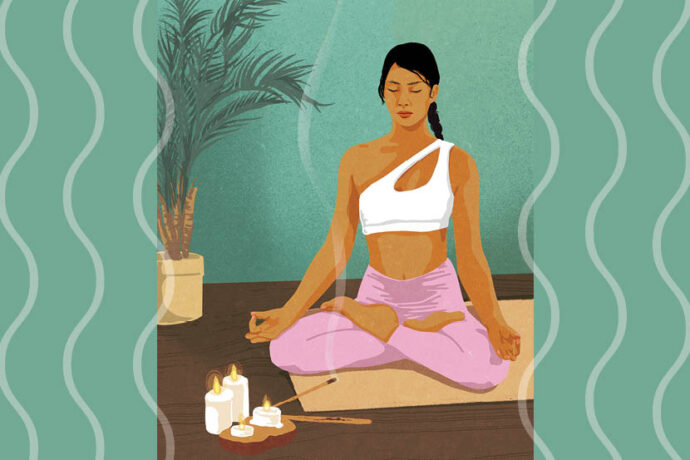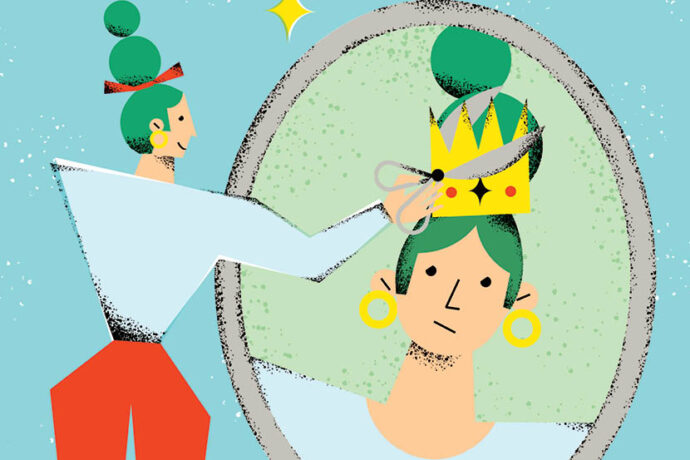
Sometimes even positive change can cause feelings of overwhelm and stress. Here’s how to cope
Is there something you’ve dreamed of for a long time? It could be getting a book published, renovating your home, booking an adventure holiday, or taking early retirement. How do you imagine your life being better after this event? Reaching goals can feel rewarding, mood-boosting and life-enhancing, but it can also be unsettling. Even positive change can threaten your sense of security and make you feel ungrounded. And, sometimes, it might not bring the happiness and fulfilment you expected.
What happens when there is confusion, anxiety, doubt or even disappointment once you’ve achieved a long-held ambition? Bronwyn is a Millennial who recently bought her first home. She says: ‘It’s the sort of thing many people my age dream of doing, and something that isn’t always possible given the current market, coupled with the cost of living. I spent over a year planning, searching and drastically saving. The entire process was exciting, and I was thrilled for my next chapter to begin.
‘When I finally bought my first home, I felt a deluge of emotions which came unexpectedly. Suddenly new pressures existed that hadn’t been there before – financial strain, pressure on my relationship, and my social life suffered too.’
For some, positive change can feel so stressful that it affects their health. This is what happened to journalist Kate. ‘I got engaged, married and had my first child in quick succession,’ she recalls. ‘[It was] a trio of happy things, but with them came rapid change and I experienced heart palpitations. It took a friend to see the root cause. It turns out even good change can take adjusting to.’
Rethink the changes
So, what can we do when seemingly positive change causes stress, and isn’t what we expected?
Bronwyn began to take small steps to manage the changes to her lifestyle, outlining financial pressures and her social concerns. New wife and mum Kate found the act of recognising the stresses that had been brought on by her happy life changes helped to alleviate her symptoms.
At times of change – both positive and negative – it’s easy to become stressed and lose connection with yourself. One thing to remember is to make allowances for the stress of positive change; be that moving house, moving in with a partner or landing a promotion at work.
Therapist Lisa suggests writing down in advance all the positive aspects that will come from the change. She says: ‘Then, when you’re surrounded by a sea of boxes in your new home and don’t know where to start in unpacking them, or if you find the learning curve in your dream job is steeper than you imagined, referring to this list will give you the courage to persevere.’
Lisa adds that it can help to give yourself mini breaks throughout the day. ‘Every hour, on the hour, check in with yourself and assess how you’re feeling. Just a few stretches can make you feel less tense, or try a calming breathing technique. You could breathe in for a count of four through your nose, pause briefly, then breathe out through your nose for a count of eight. As you exhale, focus on releasing unnecessary nervous tension and repeat a mantra to yourself such as “all is well” or “I’m in control”. Over time, these affirmative statements could help you to feel better able to cope.’
What really matters
If positive change proves disappointing or doesn’t bring the happiness you’d desired, it might be an opportunity to re-evaluate what really matters to you. In my case, my perspective changed one evening when I was having dinner with a friend. When I told him that I’d sold only 80 copies of my book, he offered a more positive insight, pointing out it meant I’d helped to improve the wellbeing of 80 families.
It prompted such a shift in my thinking that I began focusing on other positives, such as the joy I felt when I received a message from a reader who said my words had helped to improve their life or the pleasure I felt giving a workshop and bringing along my book to sell. My friend taught me to focus on the real human connections, rather than an idea of notoriety or wealth. It was no longer about selling millions of copies, but being deeply connected to the readers who had invested their money and time into my book.
Whatever your goal or dream, it’s important to ask yourself what brings happiness. Although success can bring a sense of fulfilment, it’s difficult to feel great when you’re so busy that you lose sight of the present moment. Even if you’re striving for lofty goals, the rules of practising self-care still apply. It might be helpful to ask yourself when you feel happy and write down your responses. This activity can highlight that it’s often when you feel a sense of wellbeing in body and mind.
Comfort zone
If negative emotions and stress during times of positive change are troubling you, then this may be because the outcome is outside of your comfort zone. Helen, a career coach who works with creative freelancers and small business owners, says that when this happens the fight-or-flight response might kick in, causing an adrenaline rush and anxiety. Helen adds that change can also force you to examine how you think about yourself.
‘For example, someone might hold the belief that they’re not confident. If this person is then shortlisted for an award, or invited to an event, they may start worrying about whether they might have to make a speech or what they will wear instead of enjoying the recognition of being nominated.’
Helen suggests that working with a coach is one way to get out of your comfort zone and embrace big changes. This is because it can help to unlock what’s going on under the surface and start to explore obstacles you feel might be in your way.
Any change can bring unexpected feelings and outcomes, some of which will be welcomed, others not. If you’re reaching for something you don’t have, it can sometimes be useful to bear in mind what’s been taught for centuries by sages and spiritual teachers: real happiness is not about material possessions, or external achievements. It comes from within.
Words: Kate Orson
This article was originally published in Issue 21 – Worth the wait



















